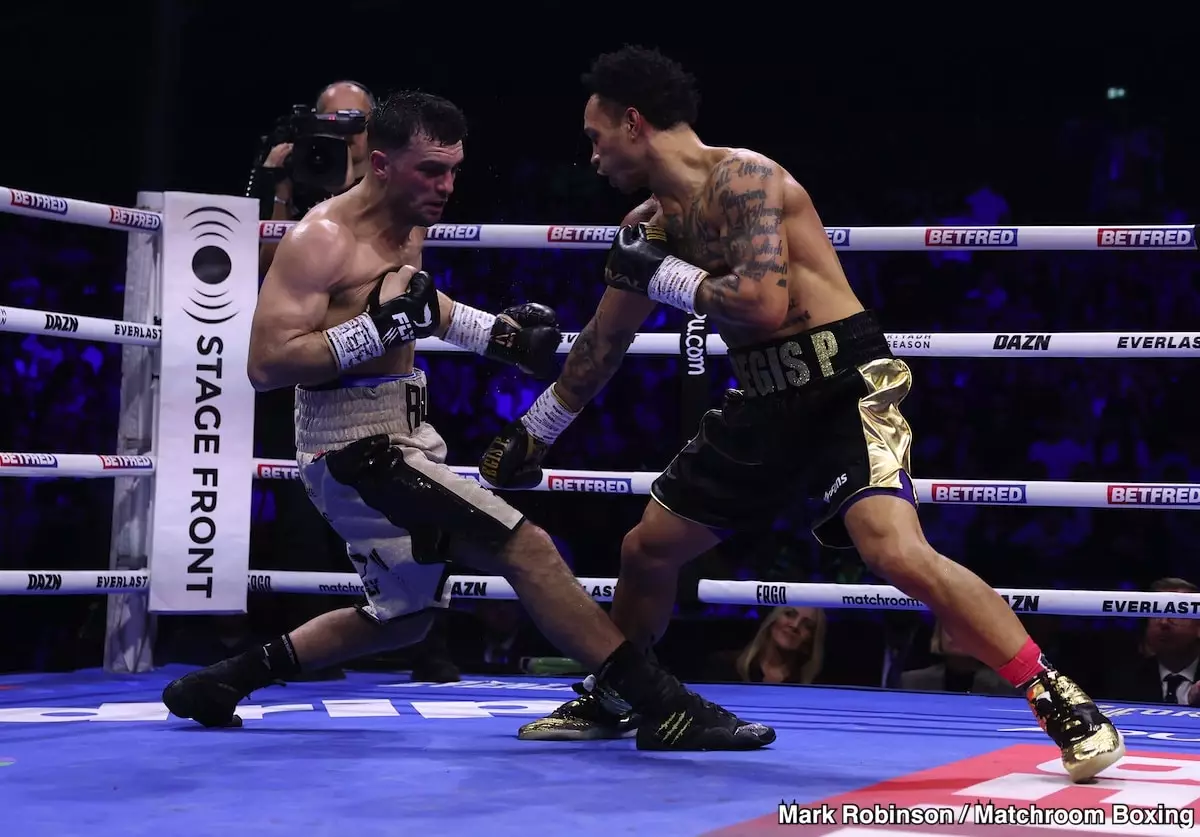The Evolving Landscape of Boxing Devin Haney and Regis Prograis Rivalry
In the dynamic world of boxing, rivalries are often the lifeblood that keeps the sport electrifying and engaging. Today, we’re diving into one such riveting rivalry that has boxing enthusiasts buzzing: the ongoing clash between Devin Haney and Regis Prograis. As a boxing fan myself, I find these narratives not only thrilling but also a testament to the psychological and strategic depth of the sport. The tension between Haney and Prograis is no exception, as it brings to light fascinating aspects of competition and ambition.
When I think about this rivalry, I’m reminded of how sports can mirror life’s challenges. Just like in any competition or personal endeavor, you need both skill and mental fortitude to rise above your opponents. Haney and Prograis exemplify these traits beautifully. Their story isn’t just about who lands more punches; it’s about who can outthink and outmaneuver the other in both the ring and public discourse. Let’s delve deeper into how this exciting rivalry is shaping up.
Key Takeaways
- Devin Haney’s undefeated record speaks volumes about his skill and confidence in the ring.
- Regis Prograis displays resilience as he seeks redemption after setbacks, eyeing new opportunities at 147 pounds.
- Their rivalry underscores the psychological battles that complement physical competition in boxing.
- Both fighters are eager to prove themselves as dominant forces in their respective divisions.
Devin Haney’s Bold Challenge
Devin Haney has become a formidable figure in boxing, boasting an impressive undefeated record of 31-0 with 15 KOs. His recent challenge to Regis Prograis on social media platform X stirred considerable attention. By suggesting that Prograis should consider retirement following a recent loss, Haney not only showcased his confidence but also added fuel to the competitive fire between them. Such moves are part of a broader strategy to establish dominance not just physically, but also psychologically over rivals.

The art of psychological warfare is as old as boxing itself, and Haney seems to have mastered its nuances. His comments towards Prograis were strategic, aimed at positioning himself as the superior fighter while highlighting any perceived weaknesses in his opponent. While on the surface these might seem like mere taunts, they’re carefully crafted messages aimed at keeping opponents second-guessing themselves. This approach keeps fans intrigued and adds an extra layer to his persona as a fighter unafraid to speak his mind.
Regis Prograis’ Resilient Response
Despite Haney’s provocations, Regis Prograis remains undeterred. With a solid record of 29-3 with 24 KOs, he responds with determination, focusing on future opportunities rather than past defeats. Prograis is considering moving to the 147-pound division—a strategy that could unlock new championship avenues. His response is not just about refuting Haney’s claims but about demonstrating his own resolve and potential for growth. It’s a reminder that setbacks can serve as stepping stones to greater achievements if approached with the right mindset.

Prograis’ journey through ups and downs paints a picture of resilience that many fighters aspire to emulate. He turned Haney’s critique into motivation by emphasizing that losses do not define him; instead, they shape his path toward future victories. The narrative he builds is one of perseverance—an essential quality for anyone aiming for greatness in boxing or any competitive field. By maintaining focus on what lies ahead, Prograis inspires both fans and fellow fighters alike.
The Debate Over Toughest Opponents
A significant aspect of their rivalry involves the debate over who presents the toughest competition. Haney has claimed that Jack Catterall is the toughest opponent Prograis has faced—a statement that sparked further discussion among fans and analysts alike. Prograis contested this assertion, suggesting that Catterall may not pose as significant a threat as implied by Haney. This back-and-forth not only adds complexity to their rivalry but also questions each fighter’s credibility in evaluating threats.
This debate shows how psychological tactics extend beyond direct challenges; they also involve shaping perceptions about one’s opponents. By questioning each other’s assessments and decisions, both Haney and Prograis engage in a subtle form of mental chess where every comment can potentially alter public perception or unsettle their opponent’s confidence. The result is a captivating narrative that keeps audiences guessing about what will happen next inside—and outside—the ring.
Looming Matches and Future Ambitions
As both fighters prepare for upcoming matches—Haney potentially facing Catterall and Prograis looking toward new horizons at 147—the pressure mounts steadily. Each bout represents an opportunity to solidify their place within boxing history while also testing their mettle against formidable adversaries. For Haney, proving his claim about Catterall would mean accepting the challenge without hesitation, thus reinforcing his assertions about toughness.

Prograis, meanwhile, hints at broader ambitions beyond responding to critiques from Haney or others. His assertion that Ryan Garcia might have ‘ruined’ Haney adds yet another twist in this unfolding drama—suggesting vulnerabilities even in seemingly untouchable figures like Haney himself. These narratives remind us how crucial mental resilience is alongside physical prowess; they highlight how gym wars and training regimens often determine outcomes before fighters even step into the ring.
Final Thoughts
The ongoing rivalry between Devin Haney and Regis Prograis offers more than just thrilling matchups; it provides insights into the multifaceted nature of boxing itself—a blend of raw athleticism intertwined with intricate psychological strategies designed to outwit opponents both publicly and privately. As these two continue carving out their legacies amidst constant scrutiny from peers & pundits alike—one thing remains certain: the intensity surrounding their feud contributes significantly toward enriching our understanding & appreciation for this beloved sport known simply as ‘the sweet science.’
boxing
Devin Haney
Regis Prograis
rivalry
psychological warfare


Leave a Reply